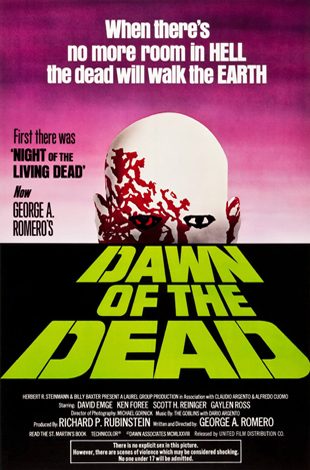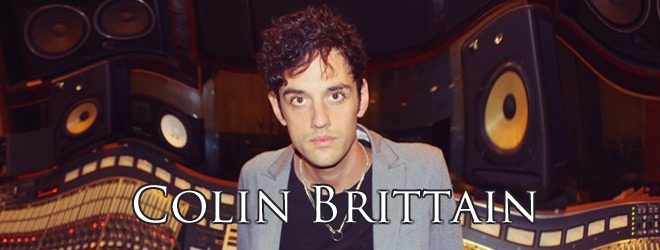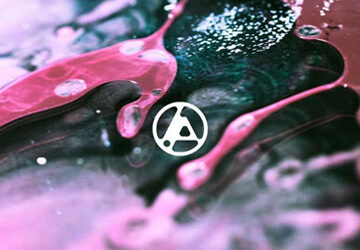
When an album is produced well, the artist’s performance is amplified tenfold, making the music stand out in a vivid way. That said, how often does the average listener really know about what goes on behind-the-scenes during the making of their favorite album? The answer is probably not very often at all, and here to shed some light on the magical world of record production is talented, rising-star Colin Brittain.
Originally from Tennessee, Brittain has harnessed his love for music into a successful career in music-production, working in the studio on such hot 2017 releases as All Time Low’s Last Young Renegade, One Ok Rock’s Ambitions, and Papa Roach’s Crooked Teeth, among many others. Looking to further expand his resume, Brittain is up to the challenge, bringing his own unique style to the recording studio. Recently we caught up with the record producer to talk about his approach to recording, his past projects and future prospects, plus much more.
CrypticRock.com – You have been involved in music as a musician, writer, and producer for some time. First tell us, what inspired you to pursue a career in music?
Colin Brittain – I have been into music since I was a kid. My father was always in a band and always had music laying around. My sister is a really great, successful songwriter in Nashville. My brother is in a band I was signed with. It has always been around my family and I’ve always kind of known this is what I want to do.
CrypticRock.com – Very cool, so it has been embedded in you since a young age. As stated, you also worked with the band Oh No Fiasco. What led to the decision for you to work more behind-the-scenes opposed to being out in-front with a band?
Colin Brittain – Like I said, I have kind of always been involved with producing and writing before I was ever with that band; I think it has been a natural progression. Once our band started touring, I started coming to L.A. a lot to write and write with different artists. I met John Feldmann and he said you should come out and work for me. It just felt right so I ended up quitting the band and started working for him. Shortly after that, I took up on my own. The universe sometimes pulls you in different directions, it just seemed like the natural thing to do.


CrypticRock.com – Well, that leads to progression and that is very positive. Of your many works, you have really built a resume as a producer working with many, diverse artists including All Time Low, One Ok Rock, and Papa Roach. Was music production something you always had a passion for?
Colin Brittain – It is just always so good to meet bands that are on your level and that you really work well with creatively. I pride myself on not being too genre-specific. I don’t really have a formula at all how to do it; each band requires a different approach. I am also very fortunate to work with other producers, one in particular is my friend Nick “RAS” Furlong who I did the entire Papa Roach Crooked Teeth album with. He was a big help and insight: working with him was really great on the Papa Roach as well as All Time Low record (Last Young Renegade). I have different approaches for different bands and it is a different story each time. We always wind up becoming very close friends and developing personal relationships as well, which I am very thankful for.
CrypticRock.com – Excellent. You mentioned Papa Roach’s latest album Crooked Teeth. This has been a very successful release for the band. That said, how did you approach this situation with RAS Furlong?
Colin Brittain – The way we went about it…I say ‘we’ because this particular album was very much a joint effort. We really took the band – which has a high amount of energy and output – and it was wrangling that energy and sort of directing it in a certain way. I did more of the sound design and did more of the recording of specific sonic palettes, while RAS was working a lot with Jacoby. The combined efforts there helped shape this beast. It was a real fun, collaborative effort and we had a blast every day. It was a new challenge, it was never like going to work; it was more like going to hang out with your friends and make music all day.
CrypticRock.com – It sounds like a good situation. As you said, Papa Roach has an energy about them. Different artists have different personalities. Furthermore, an artist’s dream is to develop a distinctive sound. Behind the scenes, how do you approach helping them achieve that sound?
Colin Brittain – Like I said, it is very subjective per artist. I think the most important thing is removing yourself from the equation. It is not about me when I am making a record for a band, it is about the band and what they want to become. My mind is sort of a field-trap for melodies and songs that I heard in the past. Growing up with so many different kinds of music, when a band says “this is how I am feeling today,” then once I kind of hear the song being put together, I am able to draw from something that I felt in the past that reminded me of something. It might be Johnny Cash or it might be something else.
There will be times where I will say, “there’s something about this that reminds me of that.” Sometimes I will use their influences to help direct the song of where I think it should go. Most of the time if you sort of take yourself out of the equation, a lot of times, it will sort of direct itself. If you let the song do what it wants to do and don’t try to make it too much of anything you want it to be, if you just kind of direct it, a lot of times it kind of answers itself and lends itself to water.


CrypticRock.com – Right, you have to let something breathe. You cannot be overbearing in a recording session, correct?
Colin Brittain – Absolutely! You start with the big picture and then you get more specific; then you get all the way down to the very tiny details. I think one thing I do maybe different from a lot of other producers is I am very attentive to every single detail. Sometimes I might be perceived as micromanaging, but I feel it is important to cover every detail all the way to reverb selection to guitar tones to drum sounds to the parts themselves. I feel every little thing has to flow and support the vocals and song. If you don’t do that, sometimes you wind up with something not as unique and a little more generic.
CrypticRock.com – There is no question. Those details that you are speaking of, to the average consumer, they may not know they are there but if you take them away they will hear a difference.
Colin Brittain – You are absolutely right! It is sort of like the whole is greater than the sum of its parts; each individual part is part of a bigger picture. Covering all those details is absolutely crucial. Looking at a Van Gogh or Impressionist painting, if you look really closely you can see all these textures and tiny little details where you think, “Wow! They really thought every little square inch of this painting.” Then you step back a few feet, you see a different painting; and you step back more, it all becomes a continuous cohesive picture. I kind of approach it like that.
CrypticRock.com – That is a good approach. Working with a broad range of different types of bands, what are some of the more important things you have learned from these experiences?
Colin Brittain – I have learned a lot about people. I think the most important thing I have learned is about personal relationships, and about how music really does live and breathe in some people. It changes emotions so much and it is such a different industry and business. It is a way of life for most of the artists I work with. Because it is a way of life, like film for actors, it changes who you are. I have learned that you can really change people’s lives. It is really important for me as a producer to fully understand that. It makes me feel and know that the hours I spend in a dark studio, even if the bands are gone, is not all in vain and it is all for the people who buy it; a song can change someone’s life.


CrypticRock.com – Yes, music is an extremely important part of everyone’s life, even down to the most casual listener. In 2017, we are fully engulfed in digital recording techniques. That said, it seems a lot of people also want to capture a classic sound as heard on older records. What are your thoughts on such topics?
Colin Brittain – You can ask my engineer Ben Sabin: he sets up all the stuff for me so he knows more than anyone. I don’t approach making a track like a lot of the new Pop producers do; I learned from some of the greatest Rock producers around. Again, I think it goes back to the details and if you take care of the details, the big things take care of themselves. In my opinion, people want, at least in the kind of records I make, people want something that feels real but sounds modern. Naturally with all the plugs and digital stuff that goes into it anyway, it is going to sound modern, it always does. It is not like we are mixing on tape or anything; we are still mixing with computers and using computers to record.
I like to capture the sounds on the way in, as natural as possible, that is really part of my technique. I feel like it is different from what a lot of people do, but it is a unique part of what is my style as a producer. A good example would be a lot of people recording a vocal as clean, unaffected, and uncompressed as possible so they can have so many options later. I don’t really like to do that. I like to try and EQ and run it through a nice analog chain first, so when I get to the computer it sounds finished; then we can use minimal software to help bring it all the way. I think if you rely more on software, naturally it is going to sound more digital.
CrypticRock.com – That is an interesting approach. That leads to dynamics. A lot of modern Rock records very much lack dynamics, where all the instruments and vocals are mixed at the same volume. When you turn it up, it is painfully loud, but on an older record you can turn it up and it will sound balanced and enjoyable to listen to.
Colin Brittain – Absolutely! There is this thing going on for 10-15 years called the Loudest Wars, it drives mastering engineers crazy. It is the thought that everything has to be as loud as it can, otherwise it doesn’t sound good. In my opinion, the way I approach it, I take stuff away: if something comes in – for example a big synthesizer – I try and usually take something else out so there are not too many things happening all at once with the entire sound.
The truth is, if it is recorded well and is captured with enough saturation and analog love to it – if it is engineered correctly and sound selection is correct – and your song is good, you can always make it loud. I think one of my tests is when I am doing a mix or production, toward the very end, I turn it up as loud as I possibly can very slowly – to the point it hurts my ears – then there is something wrong. No matter how loud it is, you should always be able to keep turning it up and up and it does not really hurt your ears. That is a crucial part of my technique.
CrypticRock.com – Yes and that is something that has been lacking in recent years especially with Rock records. With a few successful co-productions out this year, what is next for you?
Colin Brittain – Out of respect for the labels I work for, I really will not say anything right yet. I will say the record I am working on right now, I haven’t been this excited in a long-time like this. There are a couple of things I am working on right now that are going to come out this year or early next year. I am definitely working on a couple of things right now, and one of them I think is going to be a really big deal and I am very grateful to be a part of it. Just wait, it will be coming soon!
CrypticRock.com – That is something to look forward to! My last question for you is pertaining to movies. CrypticRock.com covers music and Horror/Sci-Fi films. If you are a fan of these genres, what are some of your favorite films?
Colin Brittain – Rest in peace, George Romero! His Living Dead movies were some of my favorite as a kid. One of my favorite movies is Jurassic Park (1993). When I was a kid, I read Michael Crichton books a lot. My mom’s a big Stephen King fan too. As movies go, I prefer both the Horror and Sci-Fi genres.
CrypticRock.com – Very cool to hear. You mentioned George Romero, he truly was brilliant. His Living Dead movies were more than zombie films: there was an underlying social context to his stories.
Colin Brittain – Of course! Also, his production, you can kind of equate filming to making records. The way he organically created those things with the tools he had, nothing was overdone. It was all the detailed stuff, right down to the makeup. Then the underlying social and political undercurrent that he built his movies upon is very similar to how we make songs.








Superb interview, as always!